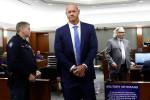Hard truths about economic development
As Gov. Brian Sandoval wrapped up his speech at the annual meeting of the Nevada Development Authority, he exhorted the huge crowd with a paraphrased quote from former President John F. Kennedy.
Asked Sandoval: What can you do to create jobs and further economic development in the state of Nevada?
Well, governor, I guess I can start by telling the truth. And the first truth is this: When President Kennedy said, “Ask not what your country can do for you, ask what you can do for your country,” he wasn’t talking about opening a new Urban Outfitters in Georgetown.
So much of economic development — the mission of the Nevada Development Authority, which gets $1 million annually from the state — finds companies asking their country (or, in this case, their state) what it can do for them.
Tax incentives? Less regulation? Relocation assistance? Hiring tax credits? Thanks to states with big slush funds, there are far more businesses looking for the proverbial handout from the taxpayers than a hand up.
And really, governor, how much more can we do? The state of Nevada already has some of the lowest taxes in the nation. We have no corporate income tax, although all the states that surround us do. We have fewer public employees per capita than any other state and the District of Columbia. Our Legislature meets less frequently than those of 46 other states.
Here’s a second truth: If low taxes and a friendly business climate led to business growth, Nevada should be brimming with business. If a low tax burden were the key to recruiting business, then Nevada Development Authority President Somer Hollingsworth would have to find another job because we’d be tripping over all the new businesses.
So the question must be asked of Sandoval, who said a low-tax climate is the state’s biggest asset in attracting business: Where the heck are all the jobs?
Why have so few businesses fled California, where there’s a personal income tax and a business income tax, for Nevada? It can’t just be San Francisco’s fine dining and Los Angeles’ glamour and beaches, can it?
Let’s not be too hard on Sandoval, however. He’s done some smart things when it comes to economic development, not least of which is putting himself at the top of state’s economic development commission. That means Sandoval is responsible for the success or failure of the efforts the state will commence early next year, when it publishes its economic development plan.
The governor has also lined up a good team of private-sector advisers, and the state will no doubt benefit from the analysis of the Brookings Mountain West/SRI International report that was the subject of my Wednesday column.
No discussion of economic development is complete without talking about education, and Sandoval talked at length about that, toting a package of reforms targeted mostly at teachers that he said would improve K-12 schools and higher education. But lengthening probationary periods, changing hiring and firing rules and giving the governor more power to appoint education officials only addresses a tiny part of the problem.
The biggest hurdle: How to properly fund the state’s schools so we have a chance to develop a top-tier research university in Nevada, the kind the Brookings/SRI report said we lacked. The impact of a school such as that on economic development would be dramatic, but nobody has advanced a plan to do it.
Until then, I hope the governor will forgive my cynicism as I ask not what my state can do for me, but what the heck my state is doing.
Steve Sebelius is a Review-Journal political columnist and author of the blog SlashPolitics.com. Follow him on Twitter at www.Twitter.com/SteveSebelius or reach him at (702) 387-5276 or ssebelius@ reviewjournal.com.


















